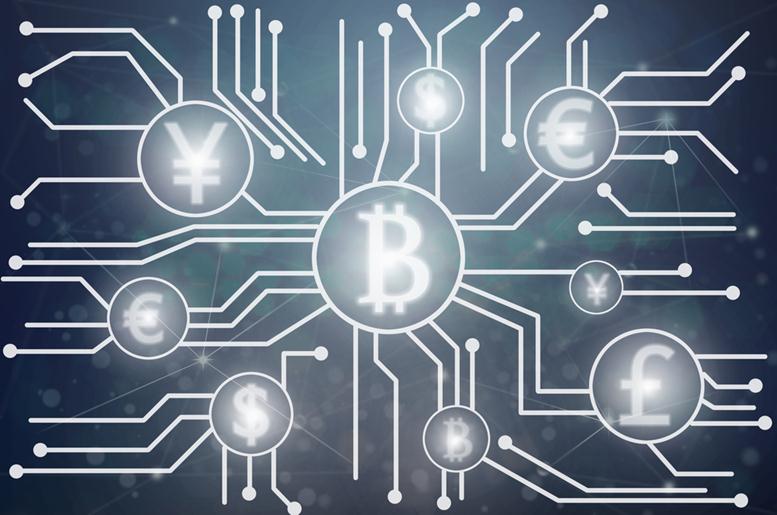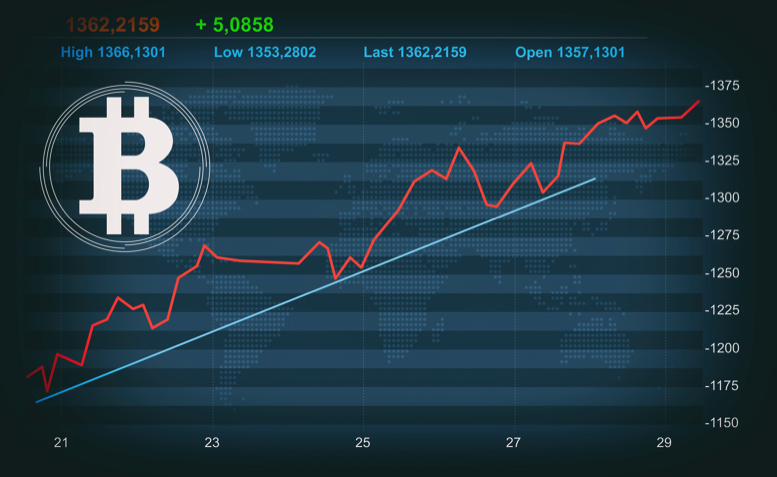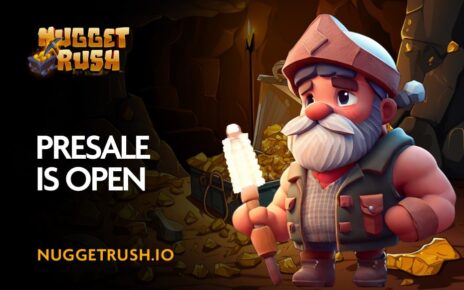[ad_1]

If you’re interested in cryptocurrency, chances are you probably understand that Bitcoin is not only the first cryptocurrency to be created, but it is also one of the most important out there.
It is important to understand that Bitcoin is a form of digital currency, and it is created and held electronically. No one controls it. Unlike euros or dollars, Bitcoins are not printed – they are produced by people, businesses, running computers worldwide, using a software program that solves mathematical problems.
Mentioned briefly, Bitcoin is the very first example of a steady growing category of money known as a cryptocurrency.
Okay, So What’s the Real Difference Between Bitcoin and Normal Currencies?
Glad you asked. Bitcoin can be used for buying things electronically. Essentially it’s like conventional dollars, yen, or euros, which also happen to be traded digitally.
With that said, bitcoin’s ability to be decentralized is one of its most important characteristics and the thing that gives it a competitive edge when it comes to conventional money. Because no single institution controls the bitcoin network, many investors remain at ease as it means a large bank is blocked from controlling their money.

Who Created Bitcoin?
You can thank software developer Satoshi Nakamoto for the digital currency. Nakamoto proposed bitcoin, which was an electronic payment system based on mathematical proof. The aim was to produce a currency independent of any central authority, as well as one that was transferable electronically, and one that had very low transaction fees.
Bitcoin has been used increasingly all over the globe since its birth in 2009.
Who Prints Bitcoin?
That’s a trick question; no one prints Bitcoin. This is a currency that isn’t physically printed in the shadows by a bank, unaccountable to the population, and making its own standards and rules. Central banks can simply produce more money to cover the national debt, which devalues their currency.
Instead, bitcoin is created digitally. By who, you ask? Well, it’s created by a community of people that anyone can join. The process is quite simple: bitcoins are ‘mined’, using computer power in a distributed network.
Further, this network processes transactions that are made with the virtual currency, which effectively makes bitcoin its own payment network.
Can I Churn Out Unlimited Bitcoins?
Nope. The protocol of bitcoin – the rules that make the currency work – state that only 21 million bitcoins can ever be created by miners. But, these coins can be divided into smaller parts. The smallest divisible amount is called a ‘Satoshi’, after the founder of bitcoin, and it is one hundred millionth of a bitcoin.
What’s It Based On?
Conventional currency tends to be based on gold or silver. In theory, you know that if you handed over a dollar at your bank, you could get some gold back (keep in mind this didn’t actually work in practice). However, bitcoin isn’t based on gold; it’s based on math. Chris Dixon, co-founder of Hunch now owned by eBay, was once quoted as saying: “There are 3 eras of currency: Commodity based, politically based, and now, math based.”
Globally, people are using software programs that follow a certain mathematical formula to create bitcoin. Interested in learning more about the programs that make up bitcoin? The mathematical formula is available for free, so anyone is eligible to check it out.
Additionally, the software is open source, which means you can look at it to make sure that it does what it has been promised to do.

Here are Bitcoin’s 7 Most Important Features:
Bitcoin has a number of features that allow it to stand out in a group of government-backed currencies.
- Bitcoin is Easy to Set Up
Traditional banks often make you jump through hoops just to open up a bank account, and with bitcoin, you can create a bitcoin address in a matter of seconds, no questions asked. Did I mention you could set up your bitcoin address with no fees payable?
- Bitcoin is Anonymous
Okay, bitcoin is kind of anonymous. You are able to hold multiple bitcoin addresses, and they will not be linked to your name, address, or any other information that could be used to personally identify the user.
However…
- Bitcoin is 100% Transparent
…bitcoin stores details of every transaction that ever happened in the network in a massive version of a general ledger, known as the blockchain. Basically, the blockchain tells all.
If you have a publicly used bitcoin address, other users can tell how many bitcoins are currently stored at that address. But they won’t know that it’s yours.
- Bitcoin is Decentralized
As mentioned, the bitcoin network is not controlled by one central authority. Every single machine that mines the currency and processes transactions make up a part of the bitcoin network and all of the machines work in unison. What does this mean? It means, in theory, one central authority can not mess with monetary policy and cause a meltdown – or decide to take people’s bitcoins away from them. If parts of the bitcoin network go offline, the money keeps flowing.
- Bitcoin is Fast
Users are able to send money anywhere in the world and it will arrive in minutes, as soon as the network processes the payment.
- Bitcoin is Non-Repudiable
After you send your bitcoin, you will not get them back. That is unless the recipient returns them to you. If not, say goodbye because they are gone forever.
- Transaction Fees are Very Small
It’s possible that your bank might charge you a $10 fee for international fees, but bitcoin won’t.
https://www.youtube.com/watch?v=Gi4fOcYbUSo
The Takeaway
Bitcoin has a lot going for it, in theory. However, because in the years since it was first created, there have been a number of other assets and forms of blockchain technology that has been developed, it’s important to read more about bitcoin before you hop on the train. Make sure you read up on how bitcoin is mined, how the network keeps an eye on everything, and what happens when a bitcoin transaction occurs.
Featured Image: Depositphotos/© Tzido
[ad_2]
Source link





